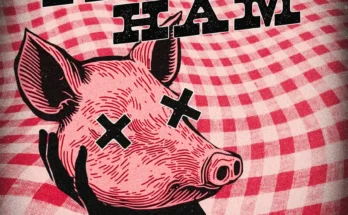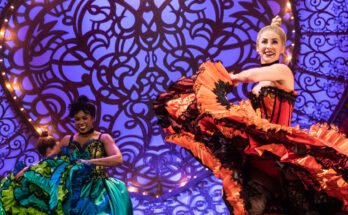Imagine waking up on an island where people don’t believe in using money while the rest of the world is experiencing an epic financial meltdown. Monologist Mike Daisey did just that, and what he discovered eventually became the genesis of The Last Cargo Cult.
“All [my] monologues emerge from the collision of my obsessions … and the need to be heard,” Daisey says. “During the period of the ‘great financial instability,’ before the crash in November of 2008, the news every day was even more unbelievable than the day before. One night, while I was surfing the Web, I saw something on the island of Tanna and how they celebrate John Frum Day, where they … retell the history of America in dance and song, and I knew I had to go.”
Daisey flew to Tanna for the annual celebration on Feb. 15 and stayed for the better part of a month. “I arrived there with a huge set of assumptions,” he remembers. “At the same time I was still shocked by how powerful the threads of money and economy were. But I didn’t realize how shocking it’d be … to be in a human society that’s not using money as a central system for the transference of power. I didn’t expect it to be as moving as it was, and it caused me to reassess the role of money in my own life.”
When he returned to America, Daisey continued his work on other shows, but started interviewing economists, studying macroeconomics and learning all he could about why the financial system collapsed. By June 2009, he was ready to start weaving the two threads of The Last Cargo Cult — the cargo cult-worshipping people of Tanna and the financial meltdown — into one unified story he could tell in front of an audience.
But Daisey is not a traditional playwright, performer or storyteller. His scripts exist only as an outline, which are created 24 hours before being performed live. During the show, his monologues ebb and flow in a rhythm dictated by the emotional climate of his audience. Like a jazz musician, Daisey relies on the existence of a deep, core structure, which forms a basic score. That sturdy base allows him to create the transitions extemporaneously, subverting audience expectations while attending to their deeper needs in order to create something truly unique night after night.
“To be quite honest, the line between a workshop and a premiere [for me] is blurry,” Daisey admits. “Production values rise to some extent in terms of set and choices of lighting, but the truth is that the work itself is born at the first performance. Then it’s just a matter of refining it, shifting and moving it in different visions and revisions of that original story.”
After each performance, Daisey and his wife/director Jean-Michele Gregory sit down to review that evening’s work, analyzing each scene and honing it. “At this point, I think of [The Last Cargo Cult] as a young adult; I know how I want to communicate it, so I’m only changing it about 10 to 15 percent a night,” Daisey says. “However, when I set a monologue down for any length of time, because I do them in repertory, there will be large shifts. The beginning of the run at Alliance will be like that.”
The day after Easter, Daisey will appear in a special one-night-only performance of his monologue How Theater Failed America on the Alliance’s mainstage. Afterwards, he will helm a panel of local Atlanta theatre artists as they discuss the state of the industry. For more information, visit alliancetheatre.org.



